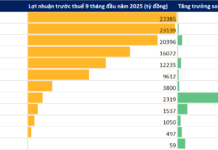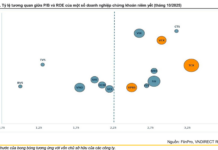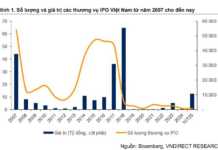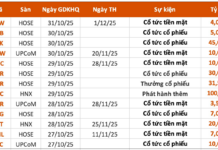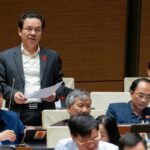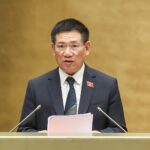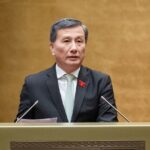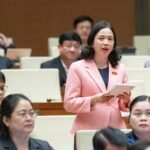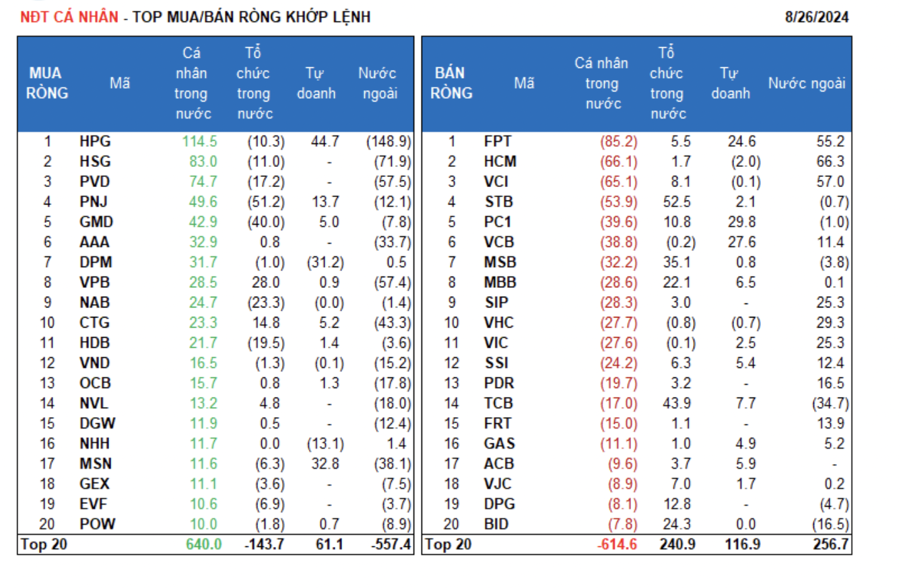On November 29, the National Assembly voted to pass the Law Amending and Supplementing a Number of Articles in 9 Laws: Securities, Accounting, Audit, State Budget, Management and Use of Public Assets, Tax Administration, Personal Income Tax, National Reserves, and Handling of Administrative Violations.
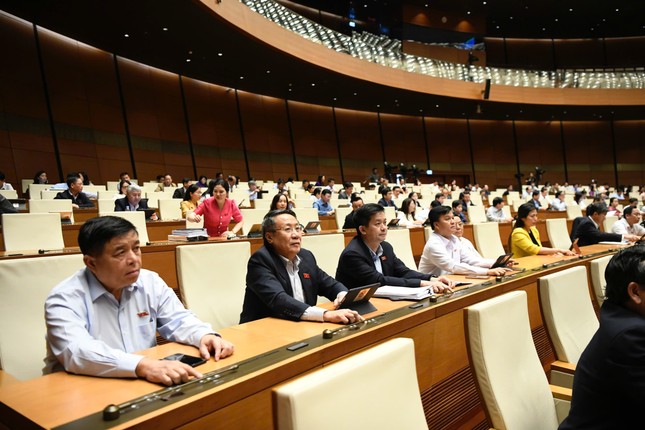
National Assembly passes draft laws, November 29. Photo: N.Y.
Taking effect from January 1, 2025, the Securities Law specifically defines six manipulative behaviors in the securities market. These include using one or more trading accounts of their own or others, or colluding to continuously buy and sell securities to create artificial supply and demand.
Placing buy and sell orders for the same type of securities within the same trading day or colluding to trade securities without actual transfer of ownership is also considered manipulative behavior.
Additionally, the law stipulates manipulative behavior as continuously buying or selling securities in dominant quantities at the market opening or closing to manipulate security prices; and transacting securities by colluding and enticing others to continuously place buy and sell orders, significantly impacting supply, demand, and security prices.
This amendment also supplements the definition of professional securities investors as foreign organizations and individuals. The law also officially allows professional individual securities investors to purchase, trade, and transfer private enterprise bonds under certain conditions.
Regarding public offerings of bonds, the law does not supplement the condition that bond offerings must be secured or guaranteed by a bank.
On this matter, the Chairman of the Finance and Budget Committee, Le Quang Manh, stated that the National Assembly Standing Committee requested the Government to review the regulations on credit rating to ensure the effective implementation of the Law.
Furthermore, there is a need for solutions to enhance the quality of credit rating organizations and promote the application of credit ratings to ensure transparency and improve the quality of corporate bond issuance.
Facilitating resolution of medicine procurement issues
On November 29, the National Assembly also voted to pass the Law Amending and Supplementing a Number of Articles in the Laws on Planning, Investment, Public-Private Partnership Investment, and Bidding.
The amended and supplemented content addresses issues that are truly necessary and urgent, with immediate implementation to resolve current difficulties and obstacles.
Regarding the Build-Transfer (BT) contract mechanism (amending and supplementing a number of articles in the PPP Law), the draft law only stipulates the basic principles of the payment mechanism to investors for three forms: payment by land, payment by state budget, and no requirement for payment.
Simultaneously, the law also supplements the regulation entrusting the Government to detail the BT contract mechanism for the above payment forms.
To address challenges and perfect the legal framework for bidding in the healthcare sector, ensuring the supply of medicines and medical equipment, the Bidding Law has been adjusted as follows: “For the purchase of medicines and medical equipment for retail sale at pharmacies within the premises of public health facilities and the purchase of vaccines for paid inoculation, the health facility is authorized to make purchases based on ensuring transparency, efficiency, and accountability.”
In the case of the Tax Administration Law, this amendment has supplemented the regulation on the amount of tax debt and the period of debt that will be subject to the temporary suspension of exit. The threshold for tax debt will be determined by the Government.
If the tax debt amount and period exceed the threshold set by the Government, temporary suspension of exit will be applied according to the law on exit and entry.
The tax management agency will notify the taxpayer in advance about the application of the temporary suspension of exit.
The Inefficient Management of State-Owned Enterprises: A Tale of Missed Opportunities and Underutilized Assets
“There is a pressing need for a new mechanism to oversee the operations of state-owned enterprises, according to Delegate Hoàng Văn Cường from the Hanoi Congressional Delegation. He emphasized that wherever there is investment of state funds, there must be a corresponding mechanism to monitor and manage that capital effectively.”
Investing in Culture: Vietnam’s National Assembly Approves 122,000 Billion VND for Cultural Development Over the Next Five Years
On November 27, the National Assembly passed a resolution approving the investment policy for the National Target Program on Cultural Development for the period of 2025-2035.
The Mineral Resources Act: Unveiling a Legislative Landmark
On November 29, under the direction of Vice Chairman Nguyen Duc Hai, the National Assembly voted to pass the Law on Geology and Minerals. The electronic voting results showed that out of 448 delegates present, 446 voted in favor, accounting for 93.11% of the total number of delegates. Thus, with a high approval rate, the National Assembly has officially passed the Law on Geology and Minerals.










